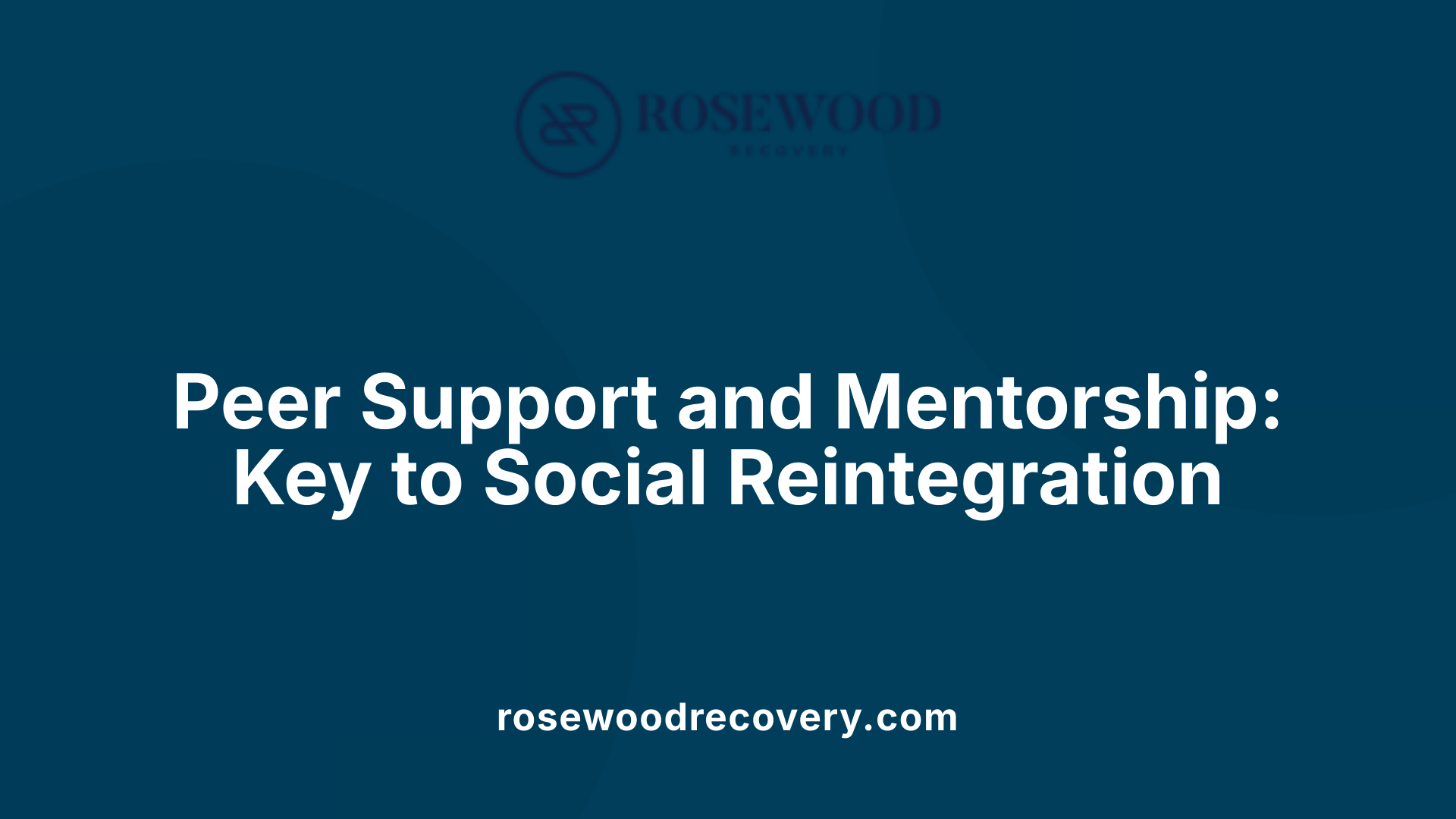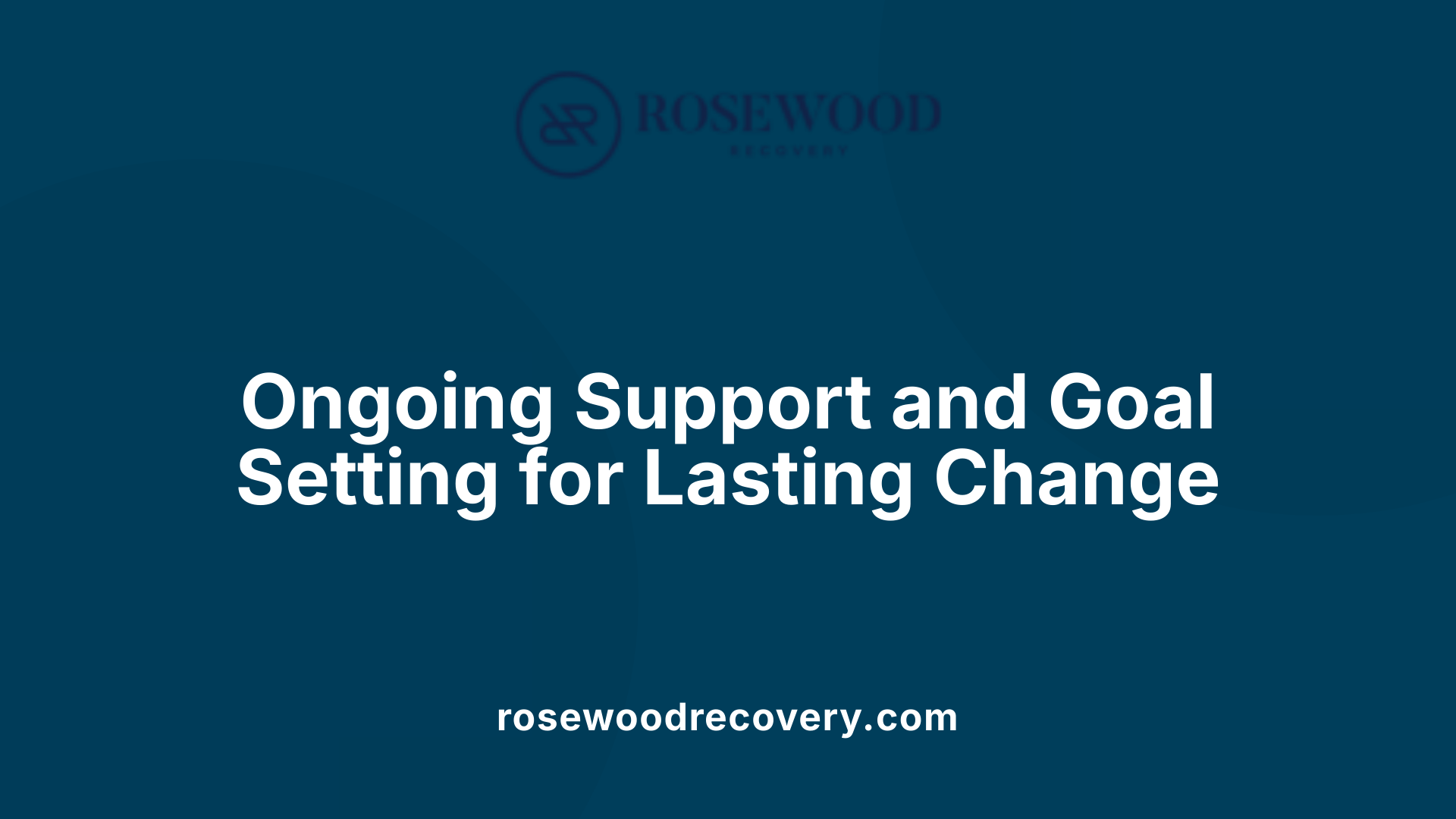Understanding the Impact of Addiction on Identity
Addiction profoundly reshapes an individual's sense of self, often blurring and distorting their authentic identity. As substance use intertwines with daily life, it can dismantle previous social roles, damage relationships, and erode self-esteem. Rebuilding a coherent and positive identity after addiction requires comprehensive treatment approaches, community support, and personalized recovery strategies that address both mental health and social reintegration. This article explores the multifaceted process of reconstructing identity in recovery, grounded in evidence-based practices and real-world interventions.
Comprehensive Treatment Services: Foundations for Identity Reconstruction

What comprehensive treatment services are typically available for substance abuse and mental health issues?
Comprehensive treatment for substance abuse and mental health challenges incorporates a variety of evidence-based interventions designed to support recovery and rebuild identity. Treatment begins with detoxification when necessary, followed by individual, family, and group counseling sessions that utilize proven psychosocial therapies such as cognitive-behavioral therapy (CBT) and dialectical behavior therapy (DBT).
Medication-assisted treatment (MAT) plays a vital role, especially in managing opioid addiction by helping reduce cravings and withdrawal symptoms. Integrating mental health and addiction care is crucial, as many individuals experience co-occurring disorders that require tailored approaches. Treatment settings range from outpatient programs to residential and inpatient facilities, offering flexibility to meet different recovery needs.
Long-term recovery support includes relapse prevention education, participation in 12-step or peer-support groups, and continuous aftercare plans. These efforts help individuals maintain progress and develop a strong, positive self-identity beyond addiction.
Crisis helplines, notably the 988 Suicide & Crisis Lifeline provided by SAMHSA, offer immediate mental health support in emergencies. Additionally, community resources like the RecoverMe campaign connect young adults to vital services addressing both substance use and mental health issues.
Together, these comprehensive services ensure that individuals receive holistic care, addressing the biological, psychological, and social aspects of addiction and mental illness. This foundation is essential for fostering lasting recovery and identity reconstruction.
Therapeutic Approaches and Medication-Assisted Treatment in Healing Identity

What types of therapy are effective in treating various forms of addiction?
Effective treatment for addiction relies on evidence-based therapies tailored to individual needs. Cognitive-behavioral therapy (CBT) is widely used to help individuals identify and change unhelpful thoughts and behaviors related to substance use. CBT empowers patients to better manage triggers and prevent relapse.
Dialectical behavior therapy (DBT) complements CBT by focusing on emotional regulation and distress tolerance, which are crucial for addressing cravings and emotional challenges during recovery. Motivational interviewing enhances internal motivation, encouraging individuals to commit to change by exploring and resolving their ambivalence.
Contingency management works through positive reinforcement, offering tangible rewards for maintaining sobriety. Family and group therapies provide support systems that repair and strengthen relationships damaged by addiction. Additionally, trauma-informed therapies such as Eye Movement Desensitization and Reprocessing (EMDR) effectively address underlying trauma that often fuels addiction.
These psychosocial interventions can be integrated within comprehensive treatment plans, especially when combined with medication-assisted treatment (MAT), to address co-occurring mental health conditions and improve overall behavioral health outcomes.
What role does medication-assisted treatment play in managing substance abuse?
Medication-assisted treatment (MAT) is a cornerstone of modern addiction management, particularly for opioid use disorder. MAT combines FDA-approved medications like methadone, buprenorphine, and naltrexone with counseling and behavioral therapies to provide a holistic approach.
MAT helps reduce cravings and withdrawal symptoms, which lowers the risk of relapse and overdose. It works by normalizing brain chemistry, blocking the euphoric effects of substances, and restoring balance in the reward system, thereby allowing individuals to regain control over their lives.
Beyond physiological benefits, MAT supports treatment retention and long-term recovery outcomes. It helps stabilize social functioning, employment, and mental health, facilitating a smoother reintegration into daily life. MAT also plays a vital role in reducing the spread of infectious diseases by decreasing illicit opioid use.
Despite challenges such as stigma and limited access, MAT remains essential in comprehensive addiction treatment programs, offering sustainable recovery paths while rebuilding self-esteem and identity.
Rebuilding Identity Through Psychosocial Strategies and Community Support

Reengaging Passions and Discovering New Interests
Recovery from addiction often involves reconnecting with activities and interests that were lost or neglected. Engaging in creative hobbies, exercise, volunteering, or exploring new passions helps individuals form a positive and meaningful sober identity. This rediscovery can restore purpose and motivation, counteracting the identity distortions caused by addiction.
Mindfulness, Self-Reflection, and Self-Forgiveness
Practicing mindfulness and regular self-reflection enables individuals to become aware of their thoughts and feelings, promoting emotional balance. Coupled with self-forgiveness, these practices allow people to acknowledge past experiences and move forward without self-judgment. This compassionate approach fosters inner strength essential for sustaining long-term recovery.
Role of Peer Support Groups and Mentorship
Peer support groups, 12-step programs, and mentorship provide critical community connections. They offer shared experiences that reduce feelings of isolation and help rebuild social identities. These relationships encourage accountability, foster acceptance, and motivate continued growth through mutual support and understanding.
Importance of Community Involvement and Social Identity Renewal
Active participation in recovery-oriented communities facilitates the development or renewal of social identities, such as roles as students, parents, or volunteers. Community involvement not only nurtures belonging but also reinforces sobriety by providing structured environments where positive values are shared and cultivated.
| Strategy | Description | Impact on Recovery |
|---|---|---|
| Reengaging Passions | Pursuing hobbies, exercise, volunteering | Enhances purpose and positive self-concept |
| Mindfulness & Self-Forgiveness | Awareness and compassion towards self | Improves emotional resilience and motivation |
| Peer Support & Mentorship | Engagement in groups and mentorship | Builds social support, reduces isolation |
| Community Involvement | Participation in shared value-based activities | Strengthens identity and reinforces sobriety |
Relapse Prevention and Long-Term Recovery: Sustaining a Renewed Identity

How are relapse prevention and long-term recovery supported in comprehensive addiction treatment programs?
Relapse prevention and sustaining long-term recovery rely on a blend of therapeutic and behavioral methods designed to help individuals maintain their renewed identity beyond addiction. Treatment programs commonly utilize evidence-based approaches such as cognitive-behavioral therapy (CBT), which helps individuals identify and modify thought patterns linked to substance use. Mindfulness techniques and dialectical behavior therapy (DBT) further assist in managing urges and emotional triggers by promoting self-awareness and emotional regulation.
Developing practical coping skills is vital. Individuals learn to recognize stressors and triggers—including environmental cues and internal emotions—and employ strategies like deep breathing exercises, grounding techniques, and the "HALT" method (addressing Hunger, Anger, Loneliness, and Tiredness) to prevent relapse. Structured daily routines and new meaningful activities, such as engaging in creative hobbies or volunteering, support the formation of a sober identity.
Ongoing aftercare plays a crucial role in recovery maintenance. Participation in support networks such as 12-step programs, peer mentorship, family therapy, and community groups creates social reinforcement and accountability. These connections are essential, as social support positively influences abstinence by encouraging a supportive environment and shared experiences.
Goal setting is another cornerstone of long-term recovery. Establishing clear, specific, and measurable goals at various stages—daily, monthly, and yearly—helps individuals maintain focus and motivation. These goals often align with personal values, fostering a meaningful substance-free life. Tracking progress through journals or apps can reinforce achievements and encourage continued dedication.
In summary, comprehensive addiction treatment programs support relapse prevention and long-term recovery by combining therapeutic interventions with skills development, sustained community support, and goal-oriented strategies. This holistic approach helps individuals rebuild and sustain a positive personal identity, enabling ongoing growth and resilience in their recovery journey.
Addressing Low Self-Esteem and Social Identity in the Recovery Journey
How Does Trauma Affect Self-Esteem and Its Role in Addiction?
Traumatic experiences like abandonment, abuse, and neglect can deeply damage self-esteem, leaving individuals vulnerable to feelings of inadequacy. This often fuels a cycle where people use substances to compensate for low self-worth, masking painful emotions.
What Cycle Connects Substance Use and Coping with Inadequacy?
Chronic low self-esteem can prompt substance use as a way to dull loneliness and boost confidence artificially. Unfortunately, this behavior usually worsens self-esteem over time, perpetuating dependence and emotional distress.
Which Strategies Help Improve Self-Image and Emotional Strength During Recovery?
Recovery programs focus on reversing negative self-talk, encouraging self-compassion, and building supportive relationships. Therapy, including trauma-informed approaches, enhances coping skills and addresses shame and disconnection. Daily self-care, goal setting, and engaging in meaningful activities foster emotional balance and growth.
How Can Assessment and Reconstruction of Social Identities Aid Recovery?
Addiction often disrupts positive social roles, leading to isolation. Recovery involves reclaiming previous identities or creating new ones that reflect hopeful, substance-free aspirations—like being a student or mentor. Support groups and community connections are crucial for rebuilding these identities and sustaining motivation.
By addressing trauma-driven low self-esteem and actively reconstructing social identities, individuals in recovery can cultivate resilience, rediscover purpose, and achieve lasting sobriety.
The Lifelong Journey of Identity Renewal
Rebuilding a sense of identity after addiction is a complex, ongoing process that interweaves clinical treatment, psychosocial support, and self-directed growth. By addressing addiction’s profound disruption of self-perception through comprehensive therapies, integrated mental health care, and community engagement, individuals can reclaim lost positive identities or forge new ones grounded in their values and aspirations. Maintaining long-term recovery demands resilience, relapse prevention strategies, and nurturing supportive relationships that reinforce sobriety and self-worth. Ultimately, recovery is not simply about abstinence but about embracing a multi-dimensional identity that empowers individuals to lead meaningful, connected, and fulfilling lives beyond addiction.
References
- Home | SAMHSA - Substance Abuse and Mental Health ...
- Recovery and Identity: Rebuilding Your Self After Addiction
- Social Identity: Transitioning from Addiction to Recovery
- 10 Steps to Build a Sober Identity
- Addiction and Identity: Rebuilding Who You Are in Recovery
- How Low Self-Esteem Can Lead to Substance Abuse
- FindTreatment.gov: Home
- Chapter 5—Specialized Substance Abuse Treatment Programs
- Services and Resources | dmh.mo.gov
- Transforming Mental Health And Addiction Services

.jpeg)
.jpeg)

